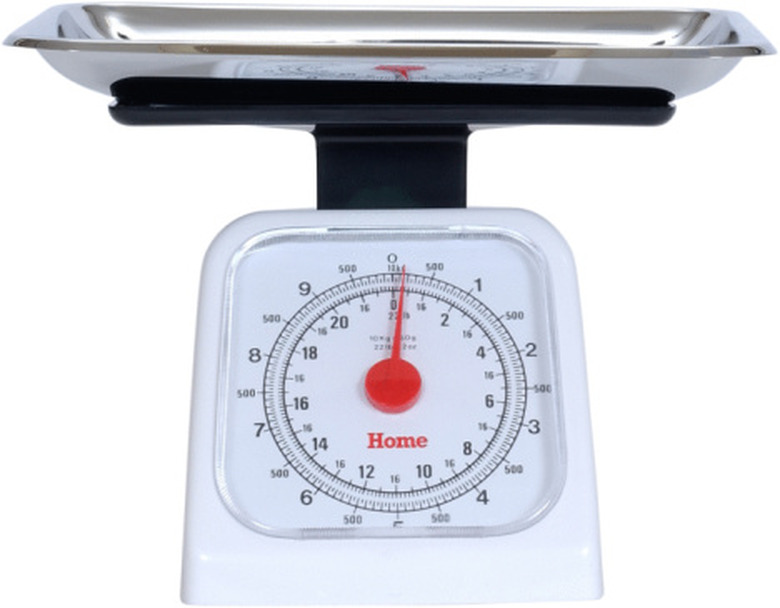How To Convert Mg To Mcg
Given that specific, highly accurate values of mass are indispensable in commerce, engineering and every other human enterprise, humans have come up with careful systems for keeping track of mass. (This is distinct from ways to measure mass, i.e., devices such as balances and scales.)
Milligrams (mg) and micrograms (mcg or μg) are two metric-system units that are especially vital in chemistry, medicine and other sciences in which masses small in relation to humans are part of everyday business; converting between them is straightforward, but knowing where metric units come from is a fun part of physical science.
Mass Explained
Mass Explained
Mass is a basic quantity of matter, and its measurement offers a basic way to keep track of the amount of "stuff" in something, in terms of the smallest constituent particles that make up that substance (i.e., atoms and molecules). Simply, matter that contains more and larger atoms will have more mass.
Another property of mass is that it has inertia, which means that particles with mass adhere to Newton's three laws of motion (briefly, objects with constant velocity remain in that state unless acted on by a force; mass times acceleration gives the value of force; and every force is associated with a force equal in magnitude but opposite in direction).
Finally, when the kind of acceleration that results from Earth's gravity acts on masses, that quantity (mg) is called weight (w), and has units of force: w = mg (usually in newtons, or N). So mass is required for something to "have weight," but they're not quite the same thing.
Where Do Metric Units of Mass Come From?
Where Do Metric Units of Mass Come From?
The kilogram (kg) is the unit of mass in the metric system, which is formally known as Système Internationale. Thus "metric" and "SI" are equivalent. The kilogram was originally defined as the mass of 1 cubic decimeter (that is, 1,000 cubic centimeters, or 1 liter) of water at about room temperature.
In the U.S., most people remain more familiar with ounces, pints, cups, quarts and gallons for everyday volume units, as when purchasing milk or gasoline. These units are mathematically related, but not in the most convenient of ways. This is where the metric system's primary advantage comes in.
What Do Metric Abbreviations Mean?
What Do Metric Abbreviations Mean?
The reason the metric system has been adopted worldwide is that it relies on successive powers of 10 to convert between units. Because there are 10 counting numbers (0 through 9) and owing to the way the Arabic numbers in everyday use are organized, multiplying or dividing a number by 10 means simply shifting a decimal place to the right or to the left.
The metric system has base units corresponding to powers of 10, both greater than and less than zero. Deca-, hecto- and kilo- are prefixes meaning 10 times, 100 times and 1,000 times respectively; deci-, centi- and milli- mean 1/10th, 1/100th and 1/1000th. These prefixes have common, unique abbreviations. Thus a kilojoule (kJ) is 1,000 J (a joule being a unit of energy) and a milliwatt (mW) is 0.001 W (watts being units of power).
Physics measurements span a great many more powers of 10 than those listed, and you're undoubtedly familiar with a few – perhaps because of rapid advances in the personal computing world. A gigabyte (GB) is a billion (109) bytes of memory, while a terabyte (TB) is a trillion (1012) bytes.
Converting mg to mcg (μg)
Converting mg to mcg (μg)
Medication doses are often given in milligrams (mg), or thousandths of a gram; some are so potent their doses are multiples of millionths of a gram, or micrograms (mcg or μg). Micro- means "tiny" in Greek, and it happens to have become the prefix associated with 10-6.
To convert mg (each of which = 1 × 10-3 g) to mcg, simply multiply by 1,000. This is because 10-3/10-6 = 103, or 1,000. To perform the reverse conversion (mcg to mg), divide by 1,000 instead.
For example,
\(34.7\text{ mg} = (1,000)(34.7) = 34,700\text{ mcg, and }850\text{ mcg} = 850/1,000 = 0.85\text{ mg}\)
Cite This Article
MLA
Beck, Kevin. "How To Convert Mg To Mcg" sciencing.com, https://www.sciencing.com/convert-mg-mcg-8654930/. 27 December 2020.
APA
Beck, Kevin. (2020, December 27). How To Convert Mg To Mcg. sciencing.com. Retrieved from https://www.sciencing.com/convert-mg-mcg-8654930/
Chicago
Beck, Kevin. How To Convert Mg To Mcg last modified August 30, 2022. https://www.sciencing.com/convert-mg-mcg-8654930/
